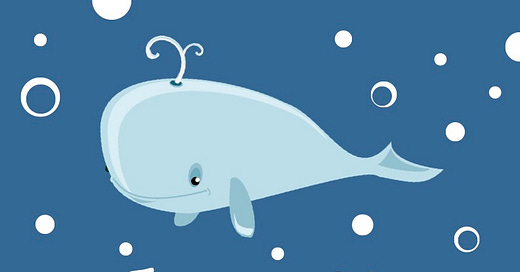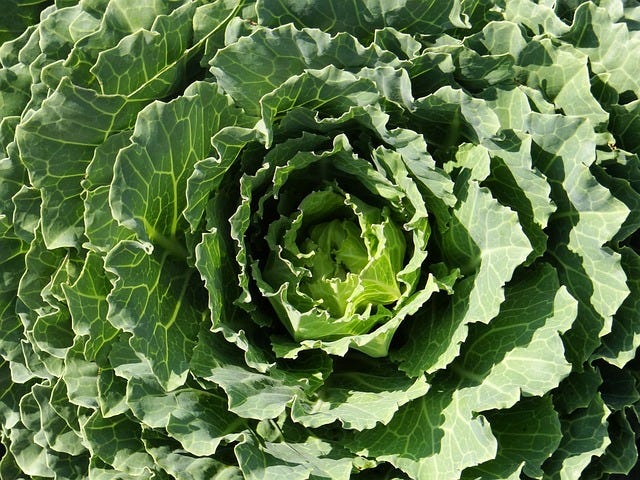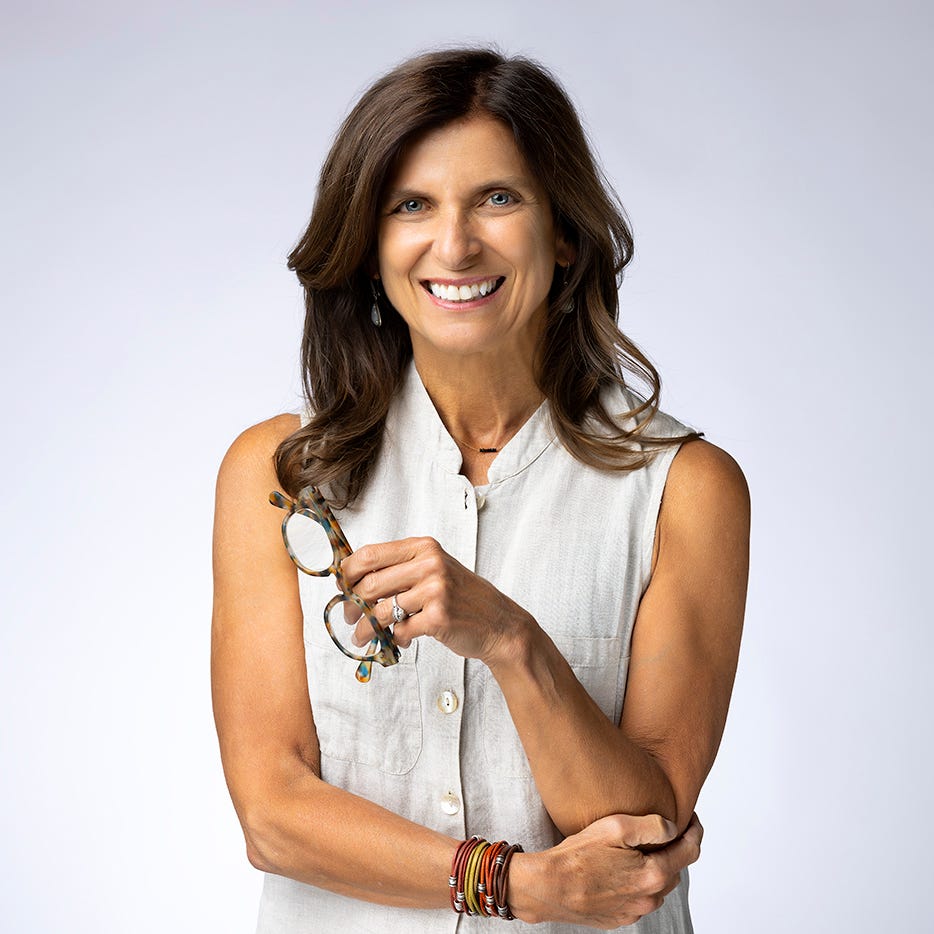Researching Brain Science and Food!
Making Sense of Health Nutrition Information with Dr. Annie Fenn
When I was growing up, my older brother’s favorite taunt was, “If fish is brain food, you should eat a whale.”
Ha! The joke’s on my brother, whales are mammals and six species are endangered. Humans shouldn’t eat or harm them.
Yet, all these decades later, I remember that joke. The messages buried in the taunt is fish is good for the brain, and misinformation about food and nutrition starts when we’re young.
In this issue of Research for Writers and Other Curious People, I’m excited to bring you the research and wisdom of Dr. Annie Fenn, founder of the Brain Health Kitchen, author of the Brain Health Kitchen Cookbook, and her must read newsletter, which I will link to at the bottom.
Dr. Fenn and I share an unhappy connection, a parent with Alzheimer’s disease. Dr. Fenn and her family are managing her mother’s declining health. I lost my father in 2015.
Dr. Fenn now devotes her time researching how Alzheimer’s can be prevented through diet and a healthy lifestyle. She retired from her medical practice and went to culinary school. She believes from her research that we can support our brains through our diets, and that Alzheimers and other forms of dementia are not inevitable, even if we have the gene for the disease.
Her mission is to explain the science, dispel the myths, and present amazing recipes that fit into your life, your budget, your time, and tastes.
Alzheimer’s disease is a form of dementia. I won’t go into a discussion about the disease as I’ve linked to the Alzheimer’s Association and they do a great job.
I spoke with Dr. Fenn about how she conducts her medical and nutrition research, how she stays on top of nutrition trends and misinformation in the media, and how laypeople should evaluate medical and nutrition news for their own health and lifestyle decisions.
Medical Research Vs. Trendy Nutrition News
Here are some interesting facts.
The nutrition and wellness market is estimated at 30.5 billion dollars in 2023
The global weight loss and management market was worth 175.44 billion dollars in 2022.
The nutritional supplement market was worth 358.8 billion dollars in 2021
Food, wellness, and nutrition is big business and growing globally year over year. Consumer interest in health leads to the development of nutrition supplements and marketing to convince consumers that wonder nutrient X is the answer to all that ails them. From this juggernaut of product comes scientific studies, medical news and journals, consumer and lifestyle television, articles, blogs, podcasts, and (ahem - newsletters.)
Dr. Fenn monitors the Alzheimer’s disease medical news. One of her go-to research sources is pubmed, a research database from the National Institutes of Health that serves as a repository for medical journals, articles, and clinical trials. As a physician, she has years of experience reading medical jargon and has perfected the ability to translate medical speak to patients. She brings this same tone to her newsletter.
She’s encouraged by new breakthroughs in Alzheimer’s research and sees an increase in medical studies.
But, as a layperson, most people lack a medical school education and search “Dr. Google” for medical questions. WebMd is one of the most popular medical sites on the Internet and the joke is if you search WebMd, eventually you’ll self-diagnose cancer or some other horrific ailment.
Dr. Fenn says sites like WebMd do an admirable job as a starting point for definitions and common questions about medical and health conditions. Of course, if you have a serious medical concern you should see a doctor!
In addition to her newsletter, she recommends resources such as the Harvard Health Letter and says that the publication’s medical journalists provide excellent news and advice for consumers.
Here are some additional health research sources
Healthline.com
Medicalnewstoday.com
Clevelandclinic.org
Mayoclinic.org
Nih.gov
Verywellhealth.com
www.nhs.uk
When You Have Nutrition Whiplash
I asked Dr. Fenn how consumers should treat the whiplash of changing nutrition advice. Subjects such as coffee is bad, no wait - it’s good, drink four cups a day.
Lectins - anti-nutrients in beans and lentils are dangerous - here’s an article from WebMd ( I told you!) - and it’s not quite true!
Oxalates found in leafy green vegetables are bad for your kidneys - beware, - also not what you think.
Just the other day, I was searching recipes for carrots tops and I discovered a false belief that they are poisonous - they’re not.
These medical myths annoy Dr. Fenn the most as they scare people and malign entire food groups. She devotes full newsletters to explaining the science, bringing light to the truth, and tops these articles off with recipes. You can read her articles about why legumes are good for you here and why leafy greens should also be part of your brain healthy diet here.
We discussed the greens and oxalate health news and she told me that a lot of this concern came from a 2009 article in the New York Times called “The Toxic Salad.” The newspaper’s platform is huge and people picked up on the click baity title. If you read the article, even the author says how they ate the tasty greens with no ill effect.
Why Does Erroneous Medical Information Persist?
Dr. Fenn explains that nutrition and health misinformation is often based on some truth. Leafy greens do contain oxalates, an anti-nutrient. Incidentally, anti-nutrients are how a plant protects itself. A build-up of oxalates in the body can cause kidney stones for already sensitive people. If someone is prone to kidney issues they should avoid oxalate-rich foods. But that’s an IF. Leafy greens provide outsized health benefits and they taste good. This is one of those scenarios where you should seek medical guidance.
A similar myth is tied to lectins found in legumes. Lectins in high concentrations are poisonous. Castor beans, a legume is a source of the poison ricin. Here is a CDC link to ricin and you may have read of terrorist attacks with this compound.
However, we don’t eat castor beans. And the lectins found in legumes (also called pulses) are neutralized WHEN YOU COOK THEM. We don’t eat uncooked dried beans. We also don’t eat raw wheat, oats, or rice. The fiber, protein, and vitamins in legumes make them a super food. They’re also affordable.
Another reason medical misinformation makes it into the media has to do with how medical studies are reported. Dr. Fenn explained that in medical school, you are taught not to read the conclusion of papers or clinical trials. Rather, you are to look at the data and evaluate the information and form your own conclusion. It’s common for a news story to only report a specific finding from a paper and not all the data or to extrapolate that trials on mice are comparable to humans.
In other words, medical and nutrition news is not immune to marketing spin. Fear is also a powerful motivator and sales tactic used for decades.
Dr. Fenn counters the fear with science. There is a black hole when it comes to science and communication. I’ll cover this in a future issue. There is amazing researching being conducted in the world, but scientists traditionally are not adept at communication. I asked her how she developed her positive voice in the newsletter. She’s writing about Alzheimer and living with it through her mother. Those are heavy feelings to translate to readers.
She says that it was her natural curiosity that lead her to look at diet as a form of protection. Writing about food and developing recipes is also fun. Additionally, she credits having an editor to help her with the tone and content.
Medical or Nutrition
Writers who cover multiple topics and audiences must educate themselves beyond the basics of each subject. I don’t want to read financial advice from someone who doesn’t understand the stock market. As Dr. Fenn began researching nutrition, she felt there wasn’t enough information about food and the brain. She took herself back to school, but this time it was culinary school. She already knew where to find nutrition studies and how to evaluate them. What she was lacking was how to apply her understanding of nutrition and brain health in a way that people would embrace.
She has a recipe development regime that rivals a clinical study with in depth testing and a cadre of home cooks who report back in detail about each recipe’s success.
I joked that after medical school and residency, culinary school must have been a breeze. She said that she was more nervous in her culinary school exams than in residency. As a medical student, you’re not handed a scapel and told, it’s all yours. Med students are highly supervised. Not so in the kitchen. If the souffle fails, it’s all on you.
Research Lessons Learned
When it comes to researching medical conditions and nutrition, here are my research takeaways.
Start with a credible source of information.
If possible, evaluate from the source, not a summary or conclusion.
Look for multiple sources.
Have a healthy dose of skepticism.
Remember that wellness and nutrition is big money, consider who is paying for each study or media placement. What is the intent?
Interview experts.
And always, eat your greens!
Check out the Brain Health Kitchen Newsletter
Pick up a copy of the Brain Health Kitchen cookbook through my affiliate link to Bookshop.org










Thank you! That totally makes my day.
Such a pleasure to hang out with you, Sharon, and dive into writing process and research. Thanks for having me!